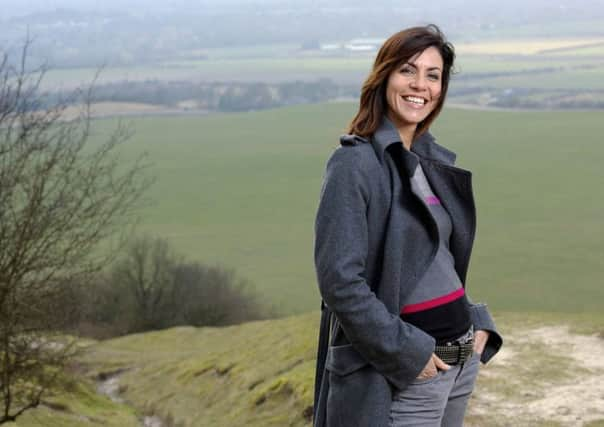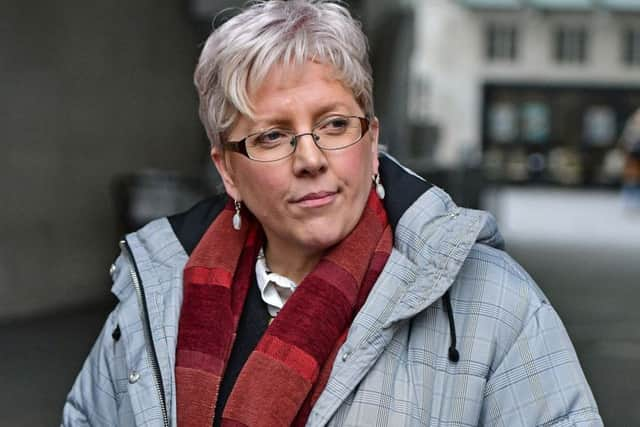Drama at the BBC as women presenters go rogue...


But the continuingly unfolding soap opera about its own staff is one spectacular the BBC would happily have handed to another channel.
The latest instalment today came as its director-general, Tony Hall, prepared for a climactic grilling by the Government’s Digital, Culture, Media and Sport Committee. Before he could announce that the internal review he had commissioned had discovered “a gender pay gap” but no evidence of bias, some of his staff went rogue.
Advertisement
Hide AdAdvertisement
Hide AdA group calling itself BBC Women, which includes the presenters Jane Garvey and Victoria Derbyshire, said the review should not be confused with an equal pay audit of all their colleagues. The group has previously said it had “no confidence” in the review and that its members had faced “veiled threats” while trying to broach the subject of equal pay.


Meanwhile, Julia Bradbury, the former Countryfile and Watchdog host, who grew up in Sheffield, criticised the decision to cut the pay of some high-profile male stars, saying it was not the way to ensure equal pay.
Broadcasters John Humphrys, Huw Edwards, Nicky Campbell, Jon Sopel, Nick Robinson, and Jeremy Vine have all reduced their salaries following the publicity surrounding the pay review.
Ms Bradbury said: “It’s very gallant of the men to step down like that... but I don’t think that’s the answer at all. It’s wrong to bring men down to try to make it an equal playing field for women.”
Advertisement
Hide AdAdvertisement
Hide AdShe said she had accepted that she would be paid less than the male co-presenter on her first big programme because he was “more experienced”.


But she added: “There has got to be a conscious change in all our attitudes.”
The BBC, however, said there would be further “substantial pay cuts” for some male presenters – while at the same time one of its managers appeared to justify high earnings for its entertainment stars.
Fran Unsworth, the newly-appointed director of news and current affairs, defended the salaries of Graham Norton, Gary Lineker, Chris Evans and other top earners by saying they were “operating in different markets”.
Advertisement
Hide AdAdvertisement
Hide Ad“Entertainment is a much more competitive market than news, and has become increasingly competitive,” she said.
The BBC revealed last year that it pays Evans £2.2m and Lineker around £1.7m. Norton earns around £850,000 a year, not including his Friday night chat show, the BBC said.
Documents from the Culture Committee reveal that a former health correspondent, Eleanor Bradford, followed the lead of BBC China editor Carrie Gracie in resigning in protest at inequalities. Ms Bradford said she was paid “around £10,000” less than some of her male colleagues.
She was the only person named in a list of 14 cases cited by the Committee as they published written evidence ahead of Wednesday’s questioning of the director-general.
The remaining 13 cases have been put forward anonymously as “most women do not wish to give their names out of concern for their BBC careers”.